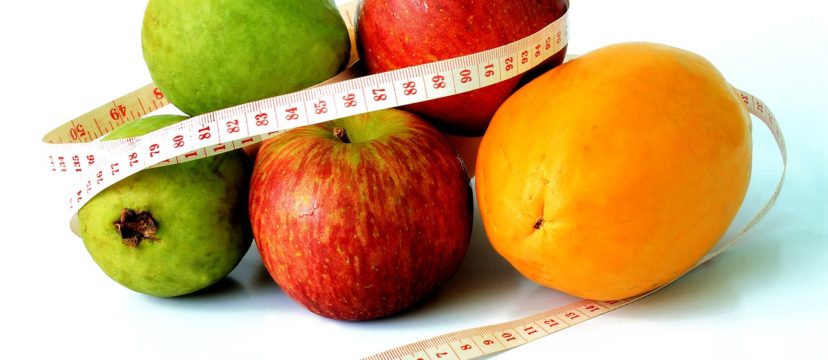This site contains affiliate links to products sold by selected self improvement partners. We may receive a commission for purchases made through these links.
Do you count calories or not?
If you do…
You could argue that in order to reach your destination, you have to know where you are going.
You could argue that calorie counting is a means of providing you with certainty in that respect.
You might even argue that counting calories appeals to people who are inclined to be logical-mathematical in their approach to learning and life.
After all, we live in a society where metrics are considered important.
However…
…there is something disturbingly familiar about calorie counting because of its associations with “eating disorder symptomatology”.
It does not matter that it is imprecise for a variety of reasons.
Not to mention that there are laws being implemented in the US to force even restaurants to display calorie information on their menus.
When it comes to losing weight or building muscles, the amount of calories you eat is one of the most common metrics you’ll find talked about. Unfortunately, this simply is not a good metric for tracking and improving performance.
A calorie is just a unit of measurement for energy. One single calorie is equivalent to the amount of energy you would need in heat to raise the temperature of one gram of water one single degree Celsius.
That energy is then converted into food and measured to see how much energy you’re taking into your body.
However, this kind of measurement does not take into account many of the crucial factors that actually determine how much weight you gain or lose.
Note: for more on the history of the calorie, check out this article
It’s not what you eat, it’s what’s in your body
One often overlooked aspect of calorie counting is the measurement of how many of the calories you eat actually end up in your blood stream.
Two people could eat the same meal and have completely different amounts of fats, vitamins, minerals and toxins absorbed by the body.
One person may take in a lot of the fat and gain weight as a result, while another person could eat the same meal and have the fats pass right through his body.
In this case, what matters really isn’t how many calories you’re eating, but how many calories are absorbed.
It leaves out the quality of the food
Of course, measuring calories completely leaves out the measurement of the food quality.
Is a calorie of ice cream the same as a calorie from organic lean meat chicken? Just a few decades ago, health experts would have said “yes.” Today however, the answer is a resounding “no.”
Where your calories come from play a much larger role in determining whether you gain weight or lose weight than most people imagine.
Are there better metrics?
There are many other metrics you can use to track your progress that are much better than old school calorie counting.
One of the best metrics is your body fat percentage. This can be measured with the use of body fat calipers.
If your body fat percentage is going up, then there’s probably something your dietary habits that you need to change. If it’s going down, you’re probably doing something right.
Keep a food journal and write down everything you eat. Then compare what you ate to the fluctuations in your body fat percentage. This information can help you identify which kinds of meals result in better results for your body.
This is a much more effective approach than measuring raw calories, which have a different effect on different people.
Another metric you can use is the Body Mass Index (BMI). While the BMI equation isn’t perfect, for the majority of people it can provide a very good indicator of overall health. If you are a bodybuilder, on the other hand, it is best to go with the body fat percentage.
In short, the archaic method of counting calories has limited use for someone who’s looking to build muscle or lose weight. It simply leaves too much information out to be useful. Instead, try using other metrics that actually give you data that can help you follow the correct course.
If you are into counting calories, whether for bulking or cutting, it is very important as a bodybuilder to make sure that you are eating enough and that your diet is nutrient-dense.
I will discuss these metrics in another article.
Sources:
Hargrove, James L. “Does the history of food energy units suggest a solution to ‘Calorie confusion’?.” Nutrition journal vol. 6 44. 17 Dec. 2007, doi:10.1186/1475-2891-6-44 [Accessed June 22, 2021]
Simpson CC, Mazzeo SE. Calorie counting and fitness tracking technology: Associations with eating disorder symptomatology. Eat Behav. 2017 Aug;26:89-92. doi: 10.1016/j.eatbeh.2017.02.002. Epub 2017 Feb 9. PMID: 28214452. [Accessed June 15, 2021]
Romano KA, Swanbrow Becker MA, Colgary CD, Magnuson A. Helpful or harmful? The comparative value of self-weighing and calorie counting versus intuitive eating on the eating disorder symptomology of college students. Eat Weight Disord. 2018 Dec;23(6):841-848. doi: 10.1007/s40519-018-0562-6. Epub 2018 Aug 28. PMID: 30155857. [Accessed June 15, 2021]
Image by Adriano Gadini from Pixabay
This site contains affiliate links to products sold by selected self improvement partners. We may receive a commission for purchases made through these links.

